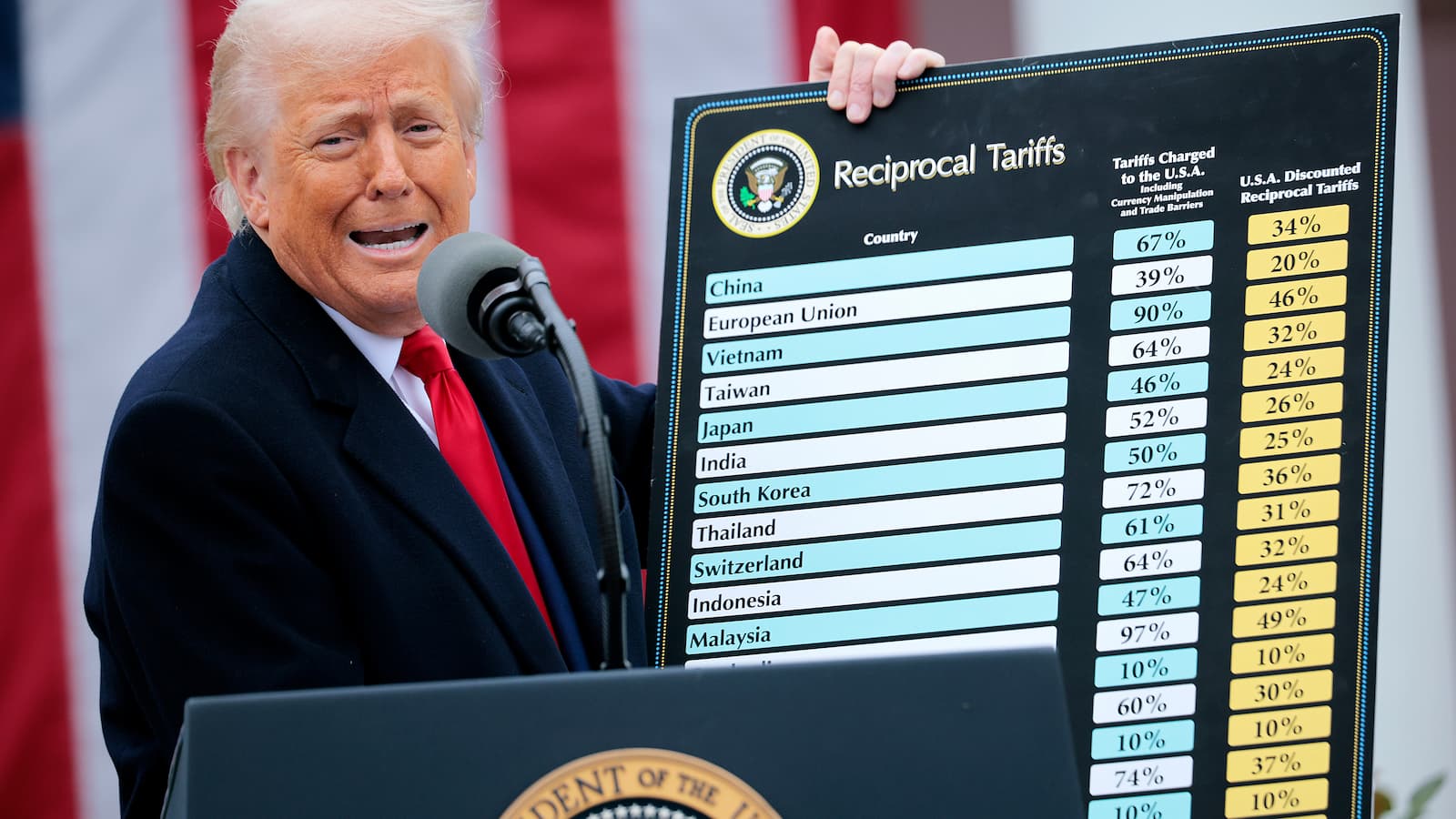Donald Trump’s new commerce tariffs are rippling via world vitality markets, and UK households may really feel the profit.
In response to MoneySavingExpert founder Martin Lewis, the “Trump impact” helps to drive down wholesale vitality costs, which implies a small drop in home payments is probably going this summer time.
The change comes within the wake of US President Donald Trump’s tariffs on imports, which have pulled down oil and fuel costs, granting a reprieve for householders seeing vitality worth rises.
The Trump impact defined

On the centre of this vitality worth shift is President Trump’s newest coverage transfer: sweeping new tariffs on imports into the USA.
Whereas aimed toward defending American producers, the knock-on impact has been a world wave of financial uncertainty, and that’s affecting vitality costs.
“It was meant to be an financial disruptor. It has actually been an financial disruptor,” Lewis stated, including that Trump’s tariffs have stoked fears of a US or world recession.
With recession fears come decrease predictions for demand, particularly for oil and fuel. That has pushed wholesale costs down, which is the place the ‘Trump impact’ begins to filter into UK vitality payments.
Deliver your dream house to life with professional recommendation, methods to guides and design inspiration. Join our publication and get two free tickets to a Homebuilding & Renovating Present close to you.
“The oil worth has dropped. And the large one for setting UK fuel and electrical energy costs is the fuel worth. And the fuel worth has dropped too,” Lewis defined.
Lewis predicts a 6-8% drop in worth cap
Martin Lewis says UK vitality payments will fall barely this summer time, however not almost as a lot as individuals may hope.
“Will the Trump impact imply your vitality payments within the UK get cheaper? The brief reply is: sure, however solely a bit of,” he stated. “Nothing to jot down house about.”
Lewis expects the July 2025 Power Value Cap to fall by round 6% to eight%, thanks partially to a steep drop in wholesale fuel costs – down about 40% from their peak in February. Nonetheless, he defined that households gained’t see financial savings on the identical scale, as a result of method the cap is calculated.
“The Value Cap relies on a time-lagged three-month common,” Lewis defined. “The info used runs from mid-February to mid-Might, so solely a part of the latest drop in costs can be included.”
He estimates that simply “one or two %” of the upcoming cap reduce is straight as a consequence of what he calls the “Trump impact” – tariffs which have weakened world vitality demand and pushed costs down.
Whereas that impression is actual, Lewis harassed it’s modest: “It’s barely sufficient to make up for the 6.4% rise individuals noticed in April.”
Can Trump trigger greater financial savings later?
Might continued financial slowdown within the US drive vitality costs even decrease? Probably. However the lagging nature of the UK’s vitality worth system signifies that any large financial savings would come slowly.
“If costs proceed to remain low, then it might be the October Value Cap and the next January Value Cap that will be decrease,” Lewis stated. However, he added, “That’s actually crystal ball gazing.”
In different phrases, whereas President Trump’s commerce coverage has unexpectedly cooled world vitality markets, UK prospects gained’t profit a lot – no less than not instantly.
And Lewis had a closing vitality saving tip for anybody getting too excited by graphs displaying vitality costs crashing: “It is going to deliver costs down, however it ain’t going to be bringing them down quite a bit – not until one thing way more drastic occurs. Sorry to be the bearer of dangerous information.”

